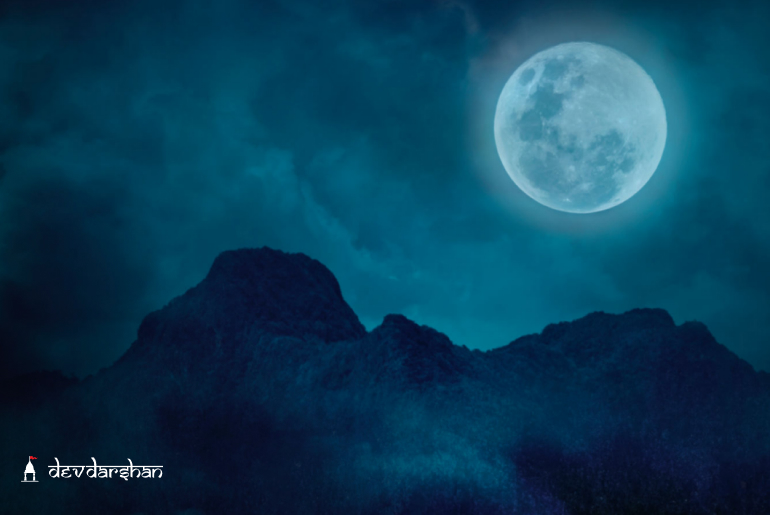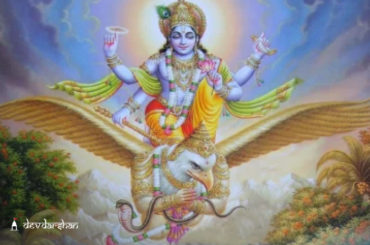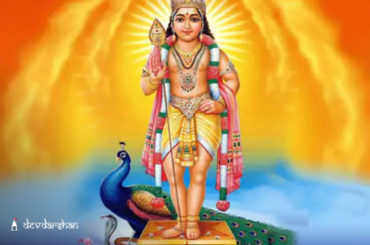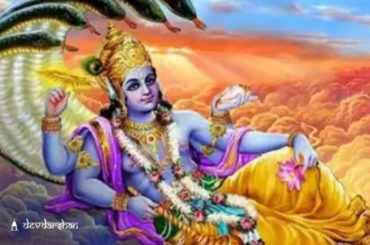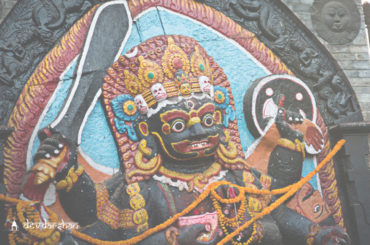Shravan Purnima, also known as the Full Moon day of the Hindu month of Shravan, holds great significance in Hindu culture. Shravan Purnima usually falls in the months of July or August according to the Gregorian calendar. The exact date varies each year based on the lunar calendar. This year it falls on Wednesday, August 30, 2023. This auspicious day is considered highly sacred and holds deep spiritual meaning for devotees.
It is a day dedicated to worshipping Lord Shiva and Lord Vishnu, and is observed with various puja rituals and traditions. This auspicious day is observed with great devotion and reverence. During this time, people engage in various religious activities and rituals to seek blessings and offer prayers to their deities.
Sawan Purnima holds great significance in Hindu culture, being considered a highly auspicious day. One of the most well-known events associated with Sawan Purnima is the celebration of Raksha Bandhan. Sawan Purnima is a significant festival celebrated in various parts of India with different names. In South India, it is known as Narayali Purnima and Avani Avittam. In Central India, it is called Kajari Poonam, while in North India, it is observed as Raksha Bandhan. In Gujarat, it is celebrated as Holy Prayer.
So, let’s get to know more about the Date, Rituals and Significance of Shravan/Sawan Purnima 2023.
Sawan Purnima 2023: Date, Muhurat and Timings
This year, Shravan Purnima is on Wednesday, August 30, 2023.
- Purnima Tithi Starts: 12:28 p.m, August 30, 2023
- Purnima Tithi Ends: 08:35 a.m, August 31, 2023
Find Out Date and Muhurat of Adhik Maas Purnima 2023
Significance of Shravan Purnima
Shravan Purnima, the full moon day in the month of Shravan (July-August), holds great significance in Hindu culture and is celebrated for various reasons.
Divine Associations
Shravan Purnima is considered highly auspicious because it is associated with several significant deities. Lord Shiva, the supreme deity of destruction and transformation, is worshipped during this time. It is believed that Lord Shiva performed the divine dance of Tandava on this day. Additionally, Lord Vishnu and his incarnations, such as Lord Krishna, are also revered on this occasion.
Raksha Bandhan
Shravan Purnima is widely known as Raksha Bandhan, a festival that celebrates the bond between siblings. Sisters tie sacred threads (rakhi) on their brothers’ wrists, symbolizing love, protection, and a lifelong commitment to each other. This festival signifies the duty of brothers to safeguard their sisters and the unconditional love and affection between siblings.
Know about Raksha Bandhan in detail
Spiritual Observances
Many devotees undertake fasts and engage in various spiritual practices on Shravan Purnima. They offer prayers, perform rituals, and visit temples dedicated to Lord Shiva, Lord Vishnu, and other deities. It is believed that observing these practices with devotion can bring blessings, purification, and spiritual growth.
Divine Boons
According to Hindu mythology, the great sage Vyasa began reciting the epic Mahabharata to Lord Ganesha on Shravan Purnima. It is believed that those who listen to or read the Mahabharata on this day can attain spiritual knowledge, wisdom, and divine grace.
Nature’s Bounty
Shravan Purnima also marks the beginning of the monsoon season in many parts of India. The rain brings fertility to the land, rejuvenating vegetation and crops. Farmers and agricultural communities express gratitude for the bountiful rains and pray for a prosperous harvest.
Overall, Shravan Purnima is a day of immense spiritual significance, celebrating the divine, strengthening familial bonds, and honouring the natural cycles of life and abundance. It provides an opportunity for devotees to seek blessings, deepen their devotion, and embrace the virtues of love, protection, and gratitude.
Also Read: Importance of Lord Shiva Puja during Shravan month
Shravan Purnima 2023 Rites and Rituals
During the auspicious occasion of the full moon day in the month of Shravan, worship is conducted in various locations. However, certain puja and rituals are common across all observances. Let’s check what the basic rites and rituals to follow on sawan purnima.
- Begin the day by waking up early in the morning and cleanse yourself through a bath. Afterward, don clean clothes and make a solemn vow to observe the fast for the day.
- Perform worship ceremonies to pay homage to Lord Vishnu, Lord Shiva, and other deities, including one’s ancestral deity (Kuldevta). Offer fruits, flowers, incense sticks, lamps, and other sacred items, adhering to the prescribed rituals and procedures.
- Engage in the reading of stories and legends associated with this special day. Follow this by conducting an Aarti, a devotional ceremony involving the waving of lit lamps accompanied by hymns and prayers.
- On Shravan Purnima, there is a tradition of tying a “Raksha Sutra” (a protective thread). This involves taking a red or yellow silk cloth, placing intact mustard seeds and yellow rice upon it, and then tying the cloth with red thread, molly, or raw yarn. Subsequently, the cloth, along with the seeds and rice, is to be placed in a copper vessel and watered.
- Take a portion of the yarn from the Raksha Sutra and tie it around your wrist with the assistance of a Brahmin priest, symbolizing the bond of protection and divine blessings.
- Show gratitude and generosity by offering food and donations to the Brahmins, expressing reverence and support for their spiritual practices.
Find out how to perform in Purnima Puja in Detail
Other religious practices that are followed on Sawan Purnima are as follows:
- Raksha Bandhan, which falls on Shravan Purnima, calls for the worship of deities and the tying of Raksha Sutra.
- On the occasion of Shravan Purnima, it is customary to feed fodder to cows, offer flour to ants, and provide grains to fish.
- As the full moon illuminates the sky, worshipping the Moon on this day is believed to alleviate “Chandra Dosha” or the afflictions related to the Moon.
- Lord Vishnu and Goddess Lakshmi are also revered on this auspicious day. Seeking blessings by visiting temples dedicated to them bestows happiness, wealth, and prosperity.
- The month of Shravan, particularly its last Monday, is dedicated to Lord Shiva. Hence, performing Rudrabhishek, a ritualistic offering of water to Lord Shiva, holds significance on this sacred day.
Find the importance of Rudrabhishek Puja
- Studying the Vedas is another tradition followed on Shravan Purnima, emphasising the importance of gaining knowledge and spiritual wisdom.
These are the common tasks observed during the Shravan Purnima, although specific customs may vary across regions and traditions.
Mythological Legends Behind Shravan Purnima
Let’s find here the mythological legend behind Sawan Purnima.
In ancient mythology, there existed a city ruled by a king named Tungadhwaj. One day, the king ventured into the forest for a hunting expedition. Feeling weary, he sought solace beneath a majestic Banyan tree. As fate would have it, his gaze fell upon a group of individuals engaged in the worship of Lord Satyanarayana. However, due to his overwhelming arrogance, the king neither participated in the religious discourse nor paid homage to the deity.
Upon the conclusion of the sacred ceremony, the villagers approached the king with utmost respect and courtesy, urging him to partake in the Prasad, the blessed offering. However, blinded by his pride, the king disdainfully declined Prasad and departed. Upon returning to his city, he discovered that his kingdom had fallen victim to an attack by a neighbouring king. Realizing that the calamity that befell his domain was a consequence of his disrespectful behaviour towards Lord Satyanarayana, the king was filled with remorse.
Overwhelmed by guilt, he retraced his steps to the spot where the Banyan tree stood and sought forgiveness from the divine entity. Humbly, he requested to receive the Prasad from the Satyanarayana Katha, recognizing the gravity of his error. Lord Satyanarayana, in his benevolence, pardoned King Tungadhwaj and aided in the restoration of his kingdom. Blessed by divine grace, the king experienced great prosperity and contentment, known as “Rajsukh,” for an extended period. Eventually, upon his demise, he attained salvation.
Also Read: How to Perform and Importance of Satyanarayan Vrat Puja?
Benefits of Observing Shravan Purnima
Observing Shravan P in acts of charity and selflessness, one can attain blessings from the deities. Many people also take holy dips in rivers or lakes as it is believed to cleanse sins and purify the soul.
In conclusion, Shravan Purnima holds immense significance in Hindu culture as a day dedicated to worshipping Lord Shiva and Lord Vishnu. By observing this auspicious occasion with devotion and performing puja rituals, devotees seek blessings for various aspects of life including health, prosperity, and spiritual well-being.
About DevDarshan
Check out various Online Puja and services provided by DevDarshan here and get your bookings done in one click. If you want to know more about Indian culture, Indian Temples, Pujas and festivals, then download the DevDarshan App. Don’t forget to share this blog if you liked.

